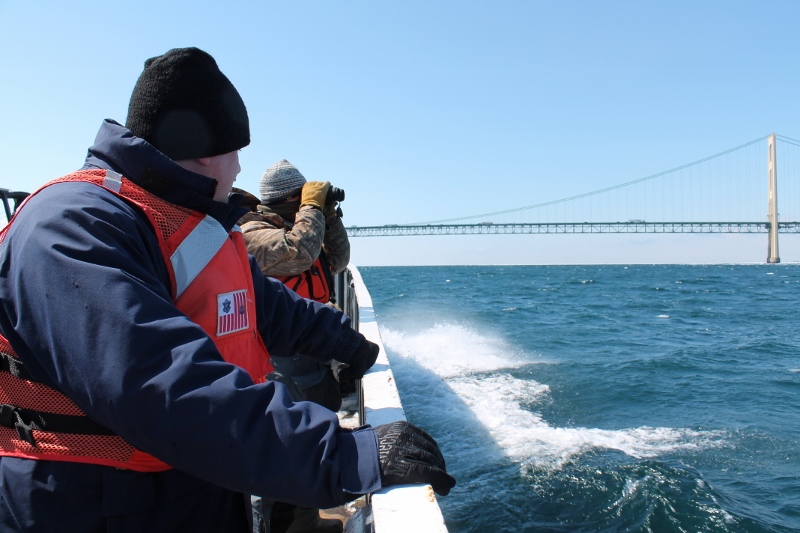A Great Lakes bulk transport company could face civil penalties over claims that one of its vessels dragged an anchor over submerged utility cables and pipelines in the Straits of Mackinac, said Michigan state attorney general Bill Schuette.
The Coast Guard is still investigating the April 3 incident when an estimated 600 gals. of dielectric fluid, a mineral oil that includes potentially cancer-causing benzene compounds, leaked from damaged American Transmission Company lines.
But Schuette said on April 17 he was preparing a civil action against VanEnvekort Tug & Barge Inc., Escanaba, Mich., alleging its 135’x50’x19’ ATB tug Clyde S. VanEnkevort dragged an anchor through a charted no-anchoring zone as it transited the Straits April 1.
“The vessel ignored markers in the channel and clearly identified hazards on navigational charts that make clear that an anchor should not be deployed in this area of straits,” Schuette said in a statement issued by his office Tuesday. “Allowing a large anchor to drag along the bottomlands in the straits has resulted in violations of state law, and we will hold VanEnkevort accountable.”
A spokesman for VanEnkevort acknowledged the company’s vessel transited the strait April 1, and would only say the company is cooperating with authorities investigating the incident.
Coast Guard officials say Enbridge Inc. petroleum and natural gas liquids pipelines under the strait were dented in the incident, but no spill observed.
Michigan officials would bring the threatened civil action under state environmental law prohibiting “the direct or indirect discharge of substances into water that are potentially damaging” to fish and other aquatic life, with violators liable to fines up to $25,000 for every day a discharge continues.
American Transmission Company contracted with Durocher Marine, Cheboygan, Mich., and T&T Subsea, Roseville, Mich., to provide tugs, a barge, and a remotely operated underwater vehicle to assess damage to the utility cables. A tug carrying sonar side-scanning technology will locate the damage in the utility cables, and the ROV deployed to obtain visual imagery of the cables. That work was awaiting better weather this week.
More than 300 gals. of mineral oil had been extracted from the damaged cables. Wildlife experts from the U.S. Department of Agriculture observing from shore did not find any birds or wildlife affected by the spill. When weather permits more surveys by vessel and aircraft will be conducted and the contractors can then deploy the ROV, Coast Guard officials said.




